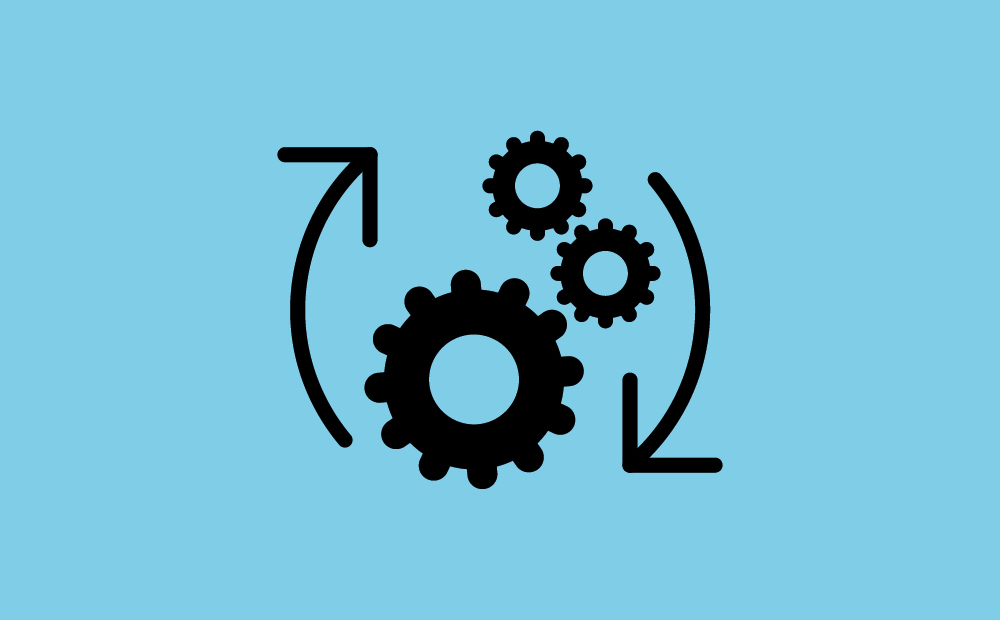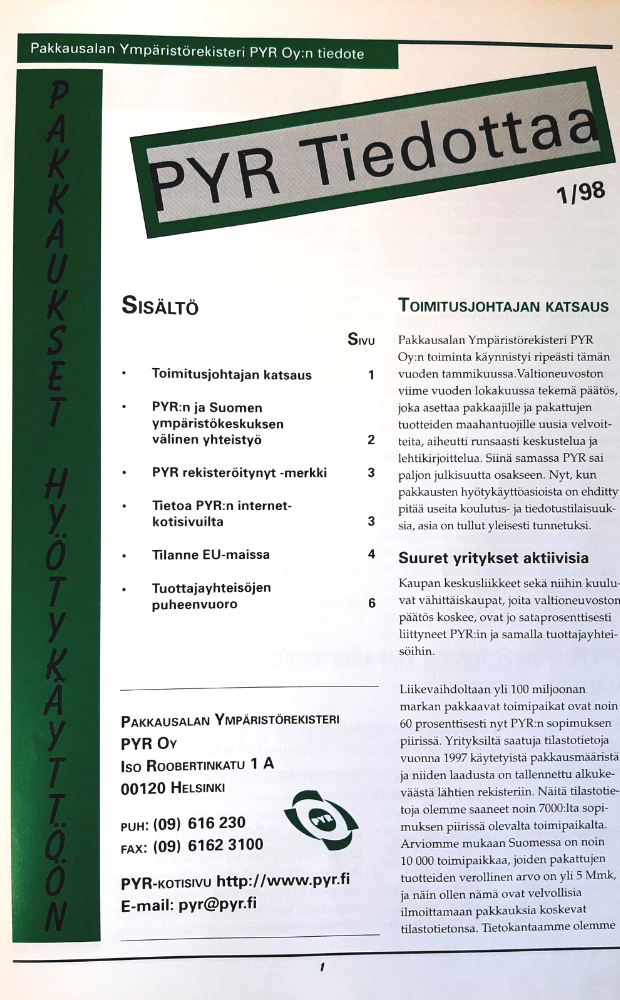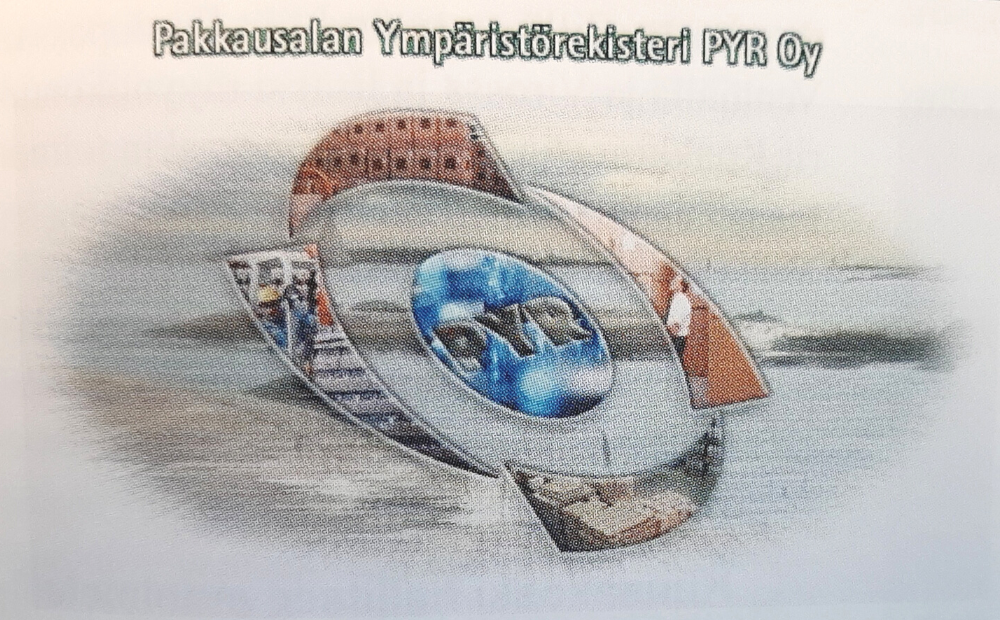Past, present and future: history of producer responsibility for packaging

The 1980s and the early 1990s
Environmental awareness and the debate about waste management issues begins to spread. Researcher Thomas Lindhqvist from Lund University presents an idea to the Ministry of the Environment in Sweden that manufacturers of products should be responsible for their products. The environmental impact is reduced when producers are responsible for the entire life cycle of their products, in particular for the collection and recycling of the products.
In the early the 1990s, some principles of producer responsibility are adopted by almost all OECD countries. Germany is the first in 1991. German packaging producers are responsible for the recycling of the packaging that they sell. German producers develop a dual system for collecting packaging waste from consumers along with municipal waste.
In Finland, this is the peak in the establishment of municipal waste treatment plants. Consumer advice on waste and the separate collection of biowaste become more efficient, but the majority of municipal waste ends up in landfill sites, of which there are 550 in Finland in 1990.
1994 and 1995
The idea of producer responsibility also finds its way into EU regulation. The Packaging and Packaging Waste Directive 94/62/EC enters into force in the EU countries, with partial producer responsibility for packaging.
In Finland, businesses and the Ministry of the Environment sign an agreement according to which the packaging industry is responsible for recovering packaging waste as per the requirements of the directive: 61% by weight of total packaging waste must be recovered. The principle of producer responsibility is not completely new in Finland, as paper has been collected unofficially under the producer responsibility principle since the 1940s.
Finland joins the EU in 1995. The Finnish Environment Institute becomes the official monitor of producer responsibility.
1997
Producer responsibility for packaging becomes an official part of Finnish legislation when the Council of State Decision on Packaging and Packaging Waste (962/1997) enters into force. It is based on the EU Packaging and Packaging Waste Directive and the Finnish Waste Act. Consequently, the management of producer responsibility becomes part of statutory corporate social responsibility. The producer responsibility obligation applies to companies that package or import packaged products in Finland.
Rinki’s predecessor, the Environmental Register of Packaging PYR Ltd, is established. PYR is a non-profit service company owned by Finnish industry and retail trade, and its duty is to guide and coordinate the utilization of packaging waste and to manage tasks common to the material-specific packaging producer communities required by the government’s guidelines.
2007–2013
The Ministry of the Environment begins to revise the Waste Act in Finland based on the EU Waste Framework Directive. PYR takes part in the consultations. The new Waste Act extends producer responsibility. The Waste Act Chapter on producer responsibility enters into force in 2013, but PYR successfully negotiates a transition period for the entry into force of the extended producer responsibility for packaging.
2014
The Council of State Decree on Packaging and Packaging Waste enters into force in 2014. The Decree provides for a take-back network for consumer packaging under producer responsibility, which is the responsibility of producers, and sets harsher targets for the reuse and recycling of packaging (2016 and 2020).
2015
The transition period comes to an end and the extended producer responsibility for packaging enters into force. Material-spesific producer organisations set up 30 reception terminals for packaging waste for materials collected by municipalities and companies, which open in 2015. As its duties extend, the Environmental Register of Packaging PYR Ltd is renamed Finnish Packaging Recycling RINKI Ltd. Rinki and the producer organisations jointly handle the collection, recycling and communication obligations of the companies under the producer responsibility scheme.
2016
The RINKI eco take-back point network is financed by the producers and complies with the requirements of the Packaging Decree: it has a minimum of 1,850 take-back points for fibre, metal and glass packaging waste and a minimum of 500 take-back points for plastic packaging. Thanks to the cost-efficient producer responsibility system funded by the companies, most of packaging waste is reused.
Producer responsibility for packaging celebrates its 25th anniversary this year. In the next part of the RINKI online magazine series, we will look at the current situation and future changes to the system of producer responsibility for packaging.

